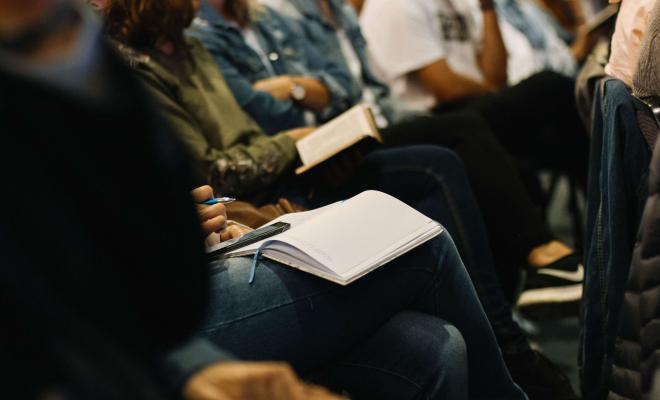02 Dec 2022
How can we stop climate breakdown?
Time is running out to stop catastrophic climate change.
I think climate change is the major challenge facing the world
Sir David Attenborough
Climate change is driving disasters – like storms, floods, droughts and heatwaves – which are already devastating people’s lives here in the UK and around the world. Climate change is also affecting the plants and animals we love and rely on.
The scary truth is our leaders aren’t doing enough. But we still have time to fix this and we have the solutions that we need at our fingertips.
Communities around the UK are taking the lead where our government isn’t – from school children going on strike, to building our own clean, affordable community energy systems, passing climate emergency council motions and generally creating greener, fairer communities.
Together we can join all of this local activity together and force our leaders to create the big systemic changes that we need. Read on for some things you can do to build a Climate Action Campaign in your community.
Our Climate Action Plan calls on the government to commit by 2020 to:
-
Aim for 100% clean energy.
-
Invest in green and affordable transport.
-
Double tree cover to tackle climate change and support nature.
-
Ban fracking and stop using dirty fuels.
-
Fund huge scale insulation and eco-heating.
-
Stop spending on harmful infrastructure – like airport expansion.
-
Pay our fair share to help vulnerable countries.
What do community climate solutions look like?
Even though the scale of climate change can seem overwhelming, there are lots of reasons for hope. UK communities are leading the way:
Planting trees - Glastonbury Friends of the Earth have been encouraging their community to plant trees as part of the fight against climate change and making space for nature. So far they’ve planted trees on council land as well as approaching local businesses to plant trees too. On one 20 acre site they planted a mix of native trees over a couple of days in order to rewild it after intense farming.
Cutting air pollution - Noticing lots of cars with idling engines at a busy level crossing, Newbury Friends of the Earth spent time convincing drivers of stationary vehicles to turn their engines off to cut air pollution. Roughly 80% of those whose engines were still running happily agreed to switch it off.
Stopping Fracking - The anti-fracking Nanas are notable for their yellow tabards, excellent baking and their mission to stop fracking. Most of the Nanas got involved to stop fracking in Lancashire. They helped successfully hold back the fracking industry for 7 years and now help other communities under threat of fracking to do the same.
Protecting Northern Ireland’s countryside - Northern Ireland has a problem with unlawful and poorly regulated mines and quarries putting some of the country’s most precious places are at risk. Communities worked to protect their countryside, including by running a series of events with help from Friends of the Earth Northern Ireland.
Rising awareness of climate refugees - Birmingham Friends of the Earth ran their Home Matters art competition to highlight how climate change is forcing people to leave their homes all over the world. The competition awarded 9 prizes across 3 age groups and concluded with an art trail through Birmingham.
Build a local action group in your community
We believe the most powerful thing we can do to solve climate change is to work together locally to be agents for change. This starts with local action. By transforming the local together, local action groups will also play an essential role in achieving the national and international change we need to see.
Building a local action group
One of the best ways to start a group in your community is to hold a campaigning event to get everyone together. The more diverse and inclusive your campaign, the more powerful it will be and the more influence it will have on decision makers. Consider groups and communities you could reach out to, like local businesses, unions, farmers, doctors, faith communities, students and many others.
Decide what you want to change. Once you’ve found a place to bring people together, you can work out what you and others in your community would like to change and by when. You could look at the other community examples and see if any of these might work for you or if they inspire other ideas – or you could just come up with your own.
Talk to local decision makers. More councils than ever before are recognising that we are in a climate emergency. But they often aren’t sure how to fix it. You could arrange a meeting with your local MP or local council to talk about your demands. Read the suggested council motion on climate solutions that you could encourage them to pass. You can also consider inviting them to your local events.
Working with local businesses and community centres. One useful avenue can be to reach out to local businesses and centres like schools, churches, mosques, temples, universities, libraries, health centres, shops and cafes etc. to work with them on joint solutions. For example could they go plastic free? Could they switch to cleaner energy sources or install solar panels? Do they have land that could be used for planting trees? Can they divest from dirty energy sources? Do they want to join your conversations with your local council to help create a stronger demand?
Raising awareness of the problem and the solutions. This can help to bring more people into your group and help generate support for your activities. Raising awareness can be anything from running stalls to public meetings, getting petitions signed and organising film screenings. There are all sorts of ways to get support for your local activities and to grow your group.
Working with media and social media. Media (both social media and traditional media) coverage is one of the best ways to get your messages out to people and draw attention to your local activities. See our guide on using social media for a local campaign and use the hashtag #TakeClimateAction to link up your work with others across the country.



